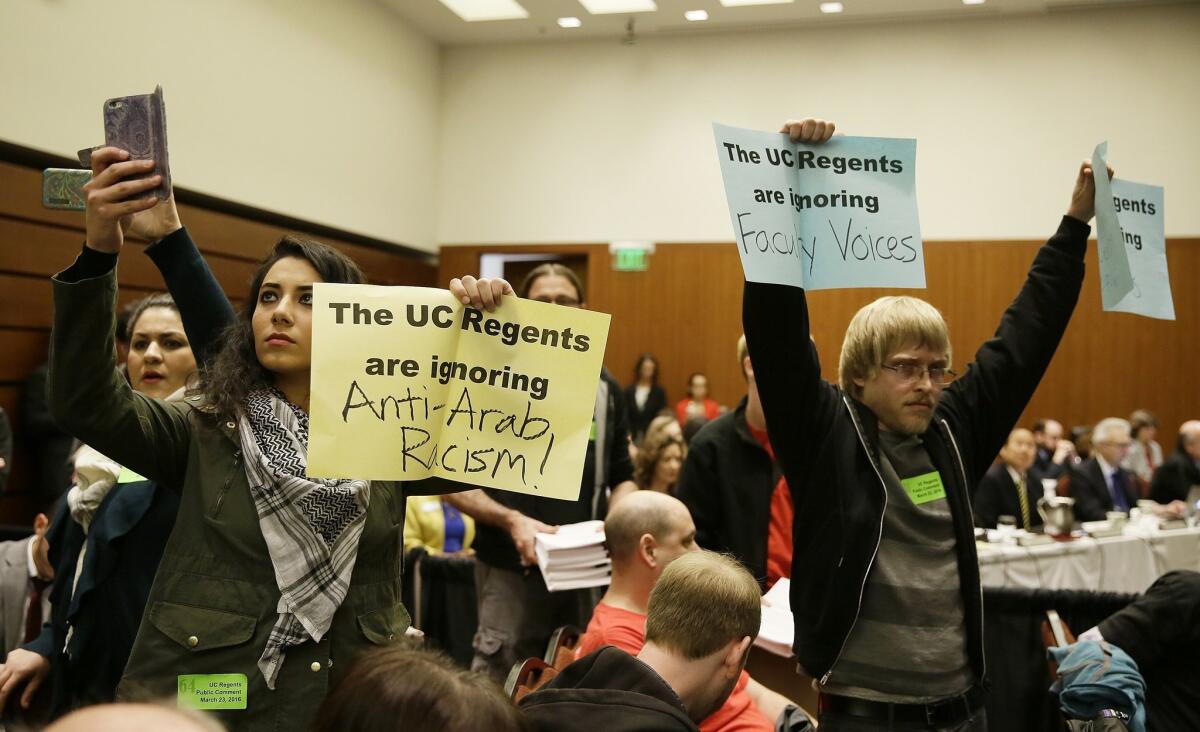Editorial: Striking a balance between free speech vs. bigotry on campus

- Share via
Regents of the University of California have wisely backed off a proposed statement that would have condemned anti-Zionism on campus on the grounds that it is comparable to anti-Semitism. Instead, the university’s overseers approved a set of “principles against intolerance” that condemn “anti-Semitic forms of anti-Zionism” as one of several forms of discrimination that have no place at UC.
The change in wording may seem minor, but the difference in meaning is substantial. The final version avoids conflating anti-Zionism, or opposition to the idea of a Jewish state, with hatred for Jews as a people. The earlier formulation was overly broad and suggested that those who reject the concept of Zionism are bigots. In reality, it’s perfectly possible to oppose Zionism — or advocate for a secular state in what is now Israel and the West Bank — without being anti-Jewish.
Supporters of the broader language had pointed to instances in which criticism of Israel or its policies toward the Palestinians had taken on the trappings of anti-Semitism. But when such bigotry is directed at individuals, the university already has policies against harassment and discrimination that allow it to take action.
With its reference to “anti-Semitic forms of anti-Zionism,” the new document arguably does no more than apply those existing principles to a form of intolerance that the regents recently have become concerned about: insulting language or conduct directed at individual Jewish students because of their presumed support for Israel. But the university can — and must — protect those students from abuse without stifling criticism of Israel.
As the statement itself acknowledges, a university education will expose students to ideas that “may be abhorrent to that student,” yet may also be “instrumental in helping a student further define their own vision.” UC was right to have second thoughts about stifling such ideas.
Follow the Opinion section on Twitter @latimesopinion and Facebook
More to Read
A cure for the common opinion
Get thought-provoking perspectives with our weekly newsletter.
You may occasionally receive promotional content from the Los Angeles Times.










